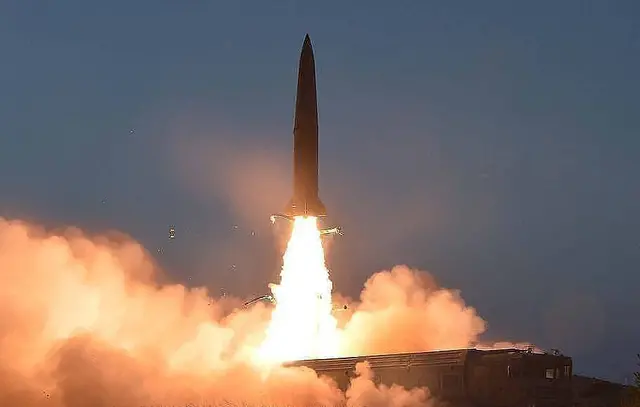This is the second time the DPRK has launched missiles recently, following the launch of two unidentified projectiles into the Sea of Japan on 2 March.
North Korea has launched at least three projectiles into the Sea of Japan, Yonhap news agency reported on Monday citing the South Korean Joint Chiefs of Staff (JCS).
The projectiles were launched from the eastern town of Sondok in North Korea's South Hamgyong Province, according to the JCS.
"Our military is monitoring the situation in case of additional launches and maintaining a readiness posture", the JCS said, as quoted by Yonhap.
The JCS, however, did not provide any details on the type of the projectiles, their flight range or altitude. Japan suspects that the launched rockets were ballistic missiles, Kyodo News reported. The "missiles" did not reach Japan's exclusive economic zone, it said.
A week ago, North Korea fired two unidentified projectiles into the Sea of Japan, the South Korean military said. The projectiles flew 240 kilometres (150 miles) at a maximum altitude of 35 kilometres (21 miles). It was the first missile test by Pyongyang in 2020.
North Korean leader Kim Jong-un announced earlier in his New Year's Day message that the DPRK would demonstrate a "new strategic weapon" in the near future, Yonhap said, which could possibly mean an advanced type of intercontinental ballistic missile (ICBM), or a submarine-launched ballistic missile (SLBM).
Kim's message came as the United States ignored the end-of-the-year deadline set by Kim to come up with a new proposal that would have lifted economic sanctions on the DPRK. North Korea asserted it would no longer adhere to the moratorium placed on its nuclear and ballistic missile tests.
While it was negotiating with Washington, Pyongyang suspended test launches of its short and medium-range missiles, nut resumed the tests after denuclearisation talks were cut short and ended prematurely without a deal in February 2019.
(SPUTNIK)
 简体中文
简体中文

